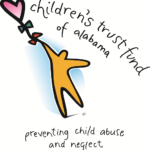Tobacco contains nicotine which is addictive, and anyone who uses tobacco is at risk of becoming addicted to it. However, some people are more likely to abuse and get addicted to tobacco products than others. This is because, like other types of addictions, certain risk factors make some groups of individuals more susceptible to tobacco abuse and addiction.

Identifying the risk factors for tobacco abuse and addiction is important in helping mitigate the damaging effects of tobacco use. By being able to identify these demographics, tobacco cessation programs know where to direct their funds to.
Some of the most common risk factors seen in people who use tobacco include having parents or guardians who smoke, depression or other mental illness, substance abuse, race/ethnicity, education, socioeconomic status, and genetics.
Having Parents or Guardians Who Smoke
When it comes to both substance abuse and substance abuse prevention, parents and guardians play a major role. Children who grow up with parents who smoke or use any other kind of tobacco product are more likely to become smokers themselves.[1]
Parents set an example for their kids. If kids grow up in a home where smoking is normalized, they may fail to understand the negative impacts of tobacco use. They may even get curious and try one of their parents’ cigarettes.
On the other hand, parents who educate their children about the dangers of tobacco use set a healthy example. Keeping an open discussion about tobacco can help prevent children from starting smoking.
Mental Illness or Substance Abuse
 Various studies show that people who struggle with depression are at increased risk for tobacco use and addiction.[1,2] However, any type of mental illness, including depression, anxiety, post-traumatic stress disorder (PTSD), and schizophrenia can make an individual more likely to use tobacco.
Various studies show that people who struggle with depression are at increased risk for tobacco use and addiction.[1,2] However, any type of mental illness, including depression, anxiety, post-traumatic stress disorder (PTSD), and schizophrenia can make an individual more likely to use tobacco.At the same time, people who abuse drugs or alcohol or struggle with substance use disorder are also more prone to using tobacco products.
Race/Ethnicity
People of certain races and ethnicities are more likely to use tobacco products than others. For example, smoking prevalence among American Indians and Alaskan Natives is 26.1% compared to the national average of 19.4%. This is the highest prevalence of tobacco use among all racial and ethnic groups in the United States. Indigenous groups also have the lowest smoking cessation rate of all racial and ethnic groups.[3]
Highest Level of Education Completed
Americans with a lower education level are at an increased risk for tobacco abuse and addiction. A study based on data from the CDC found the following rates of smoking prevalence among various education levels:[4]
• College degree – 7.9%
• Attended some college – 19.7%
• High school diploma or equivalent – 26.4%
• Did not graduate high school – 26.5%
The more formal education a person receives, the less likely they are to continue smoking or start smoking.
Socioeconomic Status
There are major disparities when it comes to socioeconomic status and rates of tobacco use. According to the CDC, those with low socioeconomic status are those who have lower levels of education, are employed, or live at or below the poverty line. People with low socioeconomic status are more likely to start and continue smoking due to various reasons, such as:
• Targeted advertising campaigns aimed toward low-income neighborhoods and communities
• Environmental factors such as peer tobacco use and the cost and regulation of tobacco products
• Lack of availability of tobacco cessation programs
• Insufficient funds or health insurance for medical treatment
Those living below the poverty level are not only more likely to start smoking, but they are also less likely to quit and more likely to experience serious health complications as a result of their tobacco use. And, with less access to adequate healthcare, these individuals are also more likely to be diagnosed in the later stages of diseases, causing them to experience worse overall outcomes.[5]
Genetics
Few people realize that genetics can actually play a major role in whether or not a person uses and gets addicted to tobacco. Studies have found that some people have a slower nicotine metabolism than others. People with a slower nicotine metabolism may feel stronger effects when using tobacco products than people with a rapid nicotine metabolism.
Because nicotine stays in the body longer with a slower metabolism and produces stronger effects, these individuals are at an increased risk of becoming dependent on tobacco products.[2,6]
Genetic factors are usually responsible for influencing the way the body processes and experiences nicotine. As a result, a person can actually inherit the risk of developing an addiction to nicotine or tobacco from their biological parents.
Preventing Tobacco Use and Addiction
 Just because a person has one or more of these risk factors does not mean they will use tobacco or get addicted to it. It simply means they may be more vulnerable to tobacco addiction.
Just because a person has one or more of these risk factors does not mean they will use tobacco or get addicted to it. It simply means they may be more vulnerable to tobacco addiction.The best way to prevent tobacco addiction is to not use these products in the first place. Parents can stop smoking themselves and focus on educating their children on the risks of tobacco use. Communities and schools can put more funding into tobacco prevention and cessation programs to help spread awareness and provide individuals with the resources they need to keep themselves healthy.
If you or a loved one are addicted to tobacco, speak with your doctor about options for quitting. There are many evidence-based, effective treatments available.
References:
1. https://www.mayoclinic.org/diseases-conditions/nicotine-dependence/symptoms-causes/syc-20351584
2. https://www.ncbi.nlm.nih.gov/pmc/articles/PMC2564659/
3. https://smokingcessationleadership.ucsf.edu/raceethnicity
4. https://journals.lww.com/oncology-times/fulltext/2014/06250/cdc_data__cigarette_smoking_by_education_level_and.26.aspx
5. https://www.cdc.gov/tobacco/disparities/low-ses/index.htm
6. https://tobaccocontrol.bmj.com/content/15/3/199








